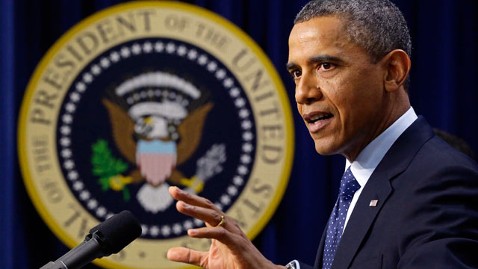WASHINGTON: The inexorable push for mobility in gadgets has reshaped the electronics industry, a shift that reflects a changing of the guard at the world's biggest consumer technology show.
Gone from the 2013 International CES, to be held January 8-11 in Las Vegas, are giants such as Microsoft, and longtime tech stalwarts such as Intel and Hewlett-Packard are taking a back seat to firms focused on more portable, or even wearable, devices.
There will of course be big, dazzling displays of televisions that are smarter and bolder. However, a key focus is likely to be on devices that are mobile but can remain connected via the Internet cloud, from tablets to wrist watches, to Wi-Fi ski goggles.
"There is a changing of the guard," said Danielle Levitas, a consumer tech analyst at the research firm IDC.
"The shift we've seen over the past years has been on the mobile aspects of technology versus home entertainment. This continues to accelerate."
Emblematic of the shift is the choice of the main keynote speaker -- Qualcomm chief executive Paul Jacobs.
"Most people have never heard of Qualcomm. People might know they have a stadium with that name somewhere," said Roger Kay, a technology analyst and consultant with Endpoint Technologies.
Semiconductor firm Qualcomm quietly overtook Intel in market value in 2012, a sign of the growing importance of mobile chips that reduce battery drag and are popular on smartphones and tablets, mostly using ARM technology licensed by British-based ARM Holdings.
"Qualcomm is the opposite of Intel," said Kay, who points out Qualcomm's reluctance to follow its rival's strategy of branding devices with "Intel Inside."
"It has been shy of the limelight and wants its partners to get all that credit. They are a reluctant hero. So important, and yet so unknown."
With mobile devices gaining ground, "folks are interested in the services that are attached to consumer electronics at the show," said Kevin Spain of Emergence Capital Partners, among the venture capital firms attending.
Spain said delivery of video over mobile devices is just starting, opening up possibilities for new ventures.
"Everything that is cloud is obviously white-hot in the venture community," Spain said.
"People are interested in sharing content across a variety of devices and the cloud plays an integral role in that. Consumers expect to have a variety of content be available on demand: video, music, anytime, anywhere."
Another focus at CES will be improving batteries and charging for all those mobile devices, according to Stu Lipoff, fellow of the Institute of Electrical and Electronics Engineers.
"One of the major limitations of portable devices is they are getting smaller and asked to do more, so people are finding innovative and creative ways of charging," he said.
CES will feature a range of power pads on which a device can be placed for charging, Lipoff said, but other firms are eyeing technologies "where you can put a transmitter in the room and it will charge the device" from several feet away.
James McQuivey at Forrester Research said CES has evolved from a show in which manufacturers would sell their wares to a branding event.
"It is shifting to a more abstract or long-term vision of technology," he said.
"It's about branding, demonstrating you are innovating for the future."
McQuivey said old guard firms like Hewlett-Packard and Dell, which have been struggling amid a move to mobile devices must demonstrate they are still part of the future.
"It's a challenge to get back in the innovation game," he said.
McQuivey said CES is different than in the past because the industry now revolves around a handful of big companies whose platforms are a key.
"Google, Amazon, Microsoft and Apple are creating platforms on which everyone is innovating," he said. "CES is living in the shadow of these large platforms."
The 2013 CES features a record 1.87 million square feet (170,000 square meters) of exhibit space, with some 3,000 exhibitors displaying gadgets for digital health, connected cars, smart home devices and a broad array of communications and entertainment gear. Attendance is expected to be in line with last year's record 156,000.
Eight automakers will exhibit at the 2013 CES, the largest number ever, showing off "infotainment" technology, crash avoidance and other "smart" vehicle technologies.
Tech giant Apple is not a participant but 440 exhibitors will showcase accessories for Apple devices in the "iLounge."
"With the largest show floor in history, more innovative technologies and services will launch at the 2013 CES than anywhere else in the world," said Gary Shapiro, president and chief executive of the Consumer Electronics Association, which hosts the show.
The CES will also showcase areas such as sustainable technologies, the $90 billion "Mommy Tech" market for functional products from house cleaning to wearable fashions, fitness and health, mobile wallets, advances in using the Internet "cloud," gaming hardware and software, high-tech toys and devices for education.
-AFP/ac












